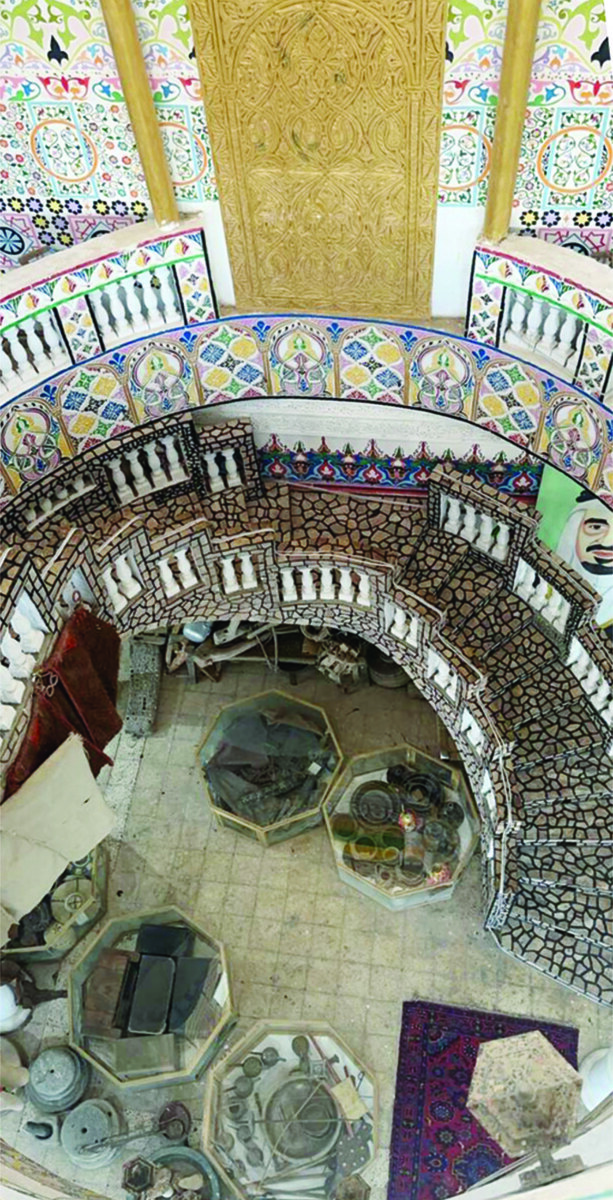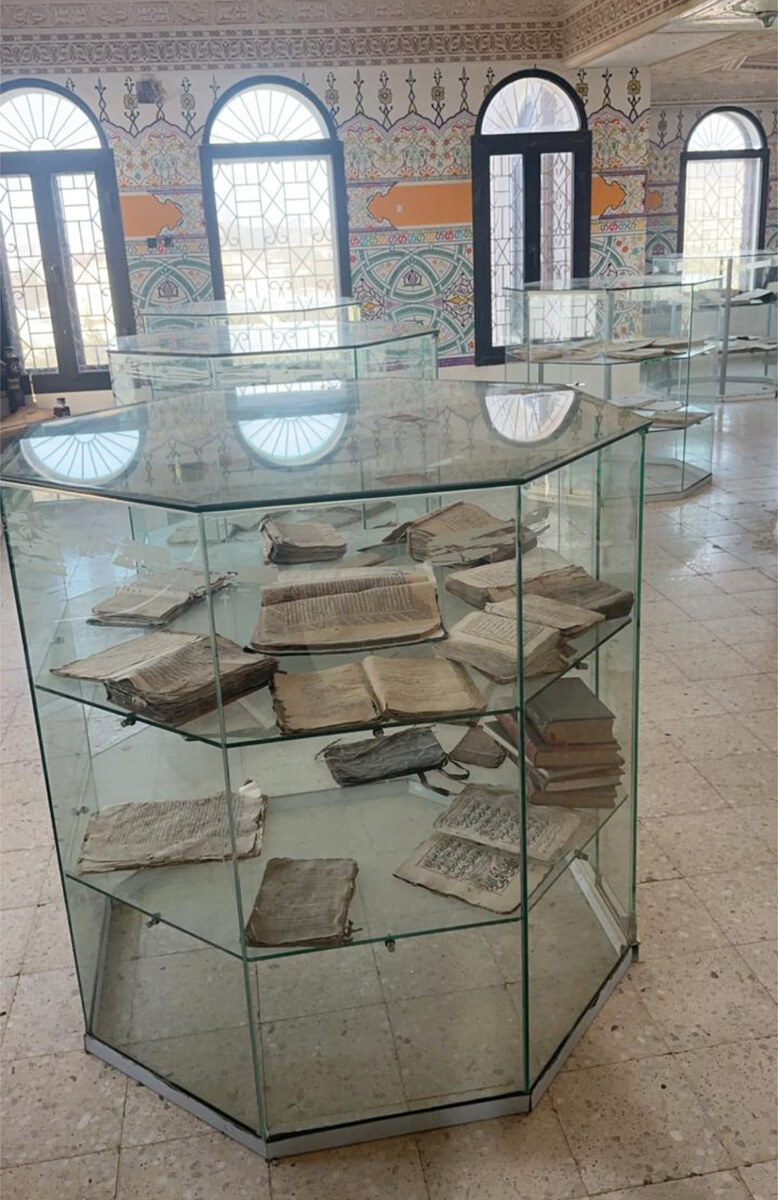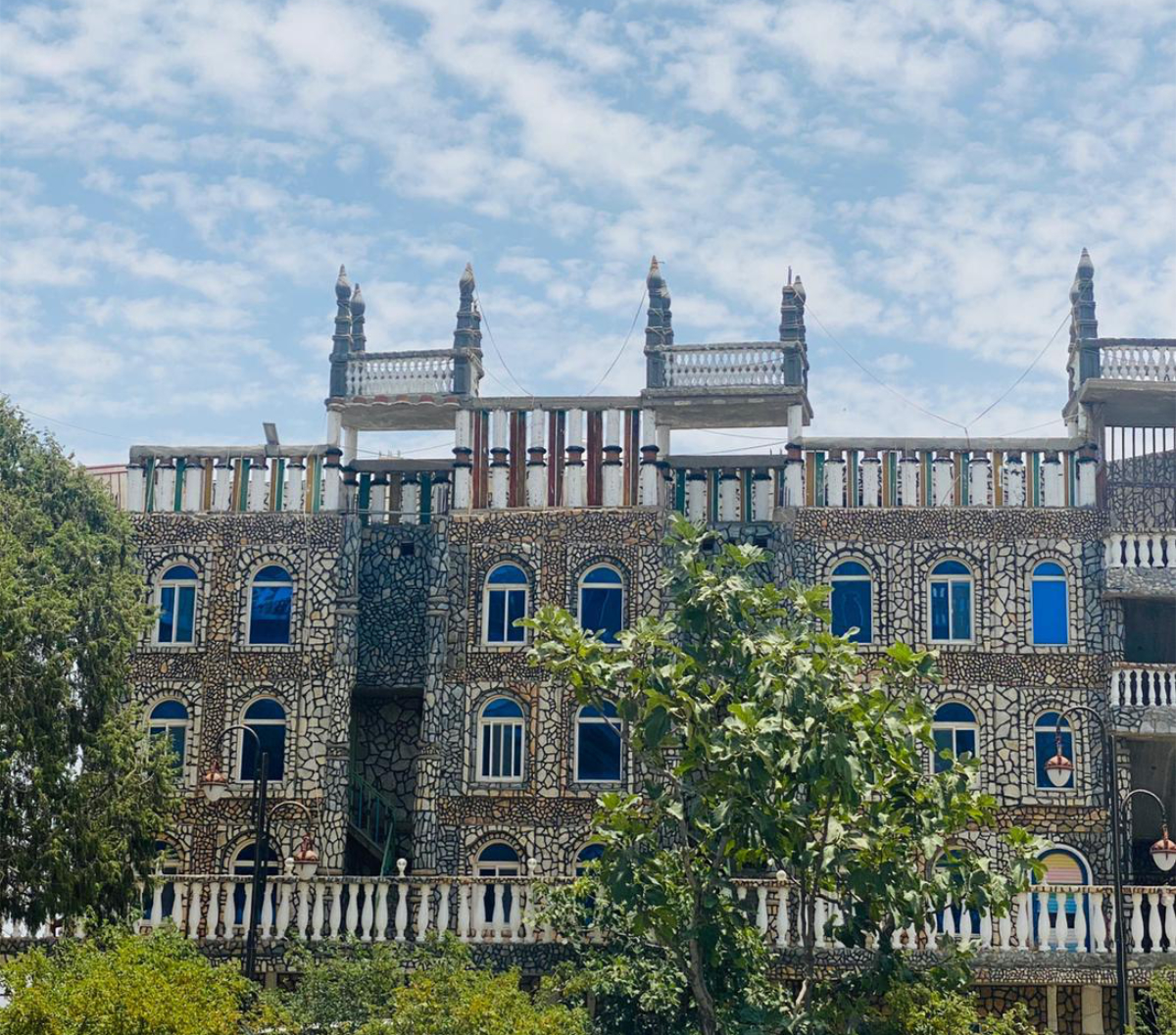RIYADH: One man’s labor of love and passion, Al-Meger Palace nestled in Asir’s Al-Namas governorate, tells the story of history, tradition, and the beauty that is born out of resilience and hardship.
The museum is home to some of the oldest manuscripts from Islamic history, including 60 volumes from the era of the Prophet Muhammad, and thousands of handwritten manuscripts of the Holy Qur’an.

Al-Meger Palace’s interiors bear thousands of Islamic motifs and its walls are saturated with architectural details of Umayyad and Abbasid civilizations. (Supplied)
Speaking about how he acquired the manuscripts for the museum, Mohammed Al-Meger told Arab News: “People from all around the country, especially the south, sold me historical manuscripts of great significance.”
The palace is a convergence of world cultures, meticulously curated by Al-Meger. Its interiors bear thousands of Islamic motifs and its walls are saturated with architectural details of Umayyad and Abbasid civilizations.
My interest sparked when I was in Jerusalem marveling at the amalgamation of different styles of architecture from different periods of time.
Mohammed Al-Meger, Museum founder
“The construction of Al-Meger Palace was no small feat, taking a staggering 35 years to complete and costing SR80 million ($21.3 million) to build,” he said.
With over 2 million stones sourced from the surrounding Asir region, the palace stands as a beacon of local architectural heritage. Al-Meger transformed a barren land populated by wildlife into an exquisite palace perched 2,400 meters above sea level.

This palace also bears thousands of Islamic decorations and contains more than a thousand hand-written manuscripts of the Holy Qur’an. (Supplied)
“My journey to creating the palace was fueled by a powerful discovery — a supplication manuscript penned by my father before his untimely passing,” he said.
This poignant relic became the guiding force behind his quest to immortalize his family's legacy through the palace, starting with collecting manuscripts.

The palace stands as a beacon of architectural wonder with over 2 million natural stones sourced from the surrounding region. (Supplied)
Orphaned at a young age, he faced challenges in his education, but Al-Meger persevered, spurred on by the memory of his late parents who were esteemed intellectuals. The palace is now part of the heritage village he built where tourists can stay.
“One of the most striking features of Al-Meger Palace is its astronomical design, which allows the sun to trace a complete circle around the palace through its myriad windows,” he explained. “Sunlight streams into the palace from over 360 windows, facilitating the observation of the sun’s path within the structure.”
The seven domes that crown it symbolize the continents of the world, a reminder of global unity and interconnectedness. Inside, more than 365 columns stand tall, representing the days in a year and fostering a sense of timelessness.
The walls of Al-Meger Palace are also steeped in the rich history of the Umayyad and Abbasid civilizations, creating a visual tapestry that weaves together centuries of cultural legacy.
As visitors roam its hallowed halls, they are enveloped in a world of wonder and discovery, with each artifact being a testament to the enduring spirit of human creativity and ingenuity.
“Tourists can see a collection of ancient Islamic texts covering a range of subjects such as medicine, mathematics, and astronomy,” he noted.
Al-Meger said that scholars and historians have marveled at the architectural ingenuity of the palace, along with its rare manuscripts.
The museum’s collection includes the oldest manuscript penned by Jamal Al-Din Ibn Tumert Al-Andalusi from 720 AD, indicating that Arabs took up chemistry and physics. “The minister of culture sent a Chinese and French delegation with equipment to document and prove its authenticity,” said Al-Meger.
The cultural marvel’s success is born out the difficulties Al-Meger faced to achieve academic success.
“I grew up without parents and attended school for three years before being expelled. I chose to care for village animals and relied on their milk for sustenance,” Al-Meger added, noting that he cared for the villagers’ sheep in Al-Namas until visiting his uncle in Tabuk at age 14.
His parents’ friends influenced him greatly as a child and he was told they were scholarly and intellectual.
Al-Meger said: “I told my uncle that I am willing to attend any school that accepts me and so I left for Nablus, Palestine. I didn’t spend a single penny (on) it as all the people of Nablus honored me and hosted me better than any of their children.”
When Al-Meger failed yet again, he moved to Jerusalem and a family took him in and enrolled him in Terra Sancta College. He wanted to become a doctor but failed once more.
“My interest sparked when I was in Jerusalem marveling at the amalgamation of different styles of architecture resembling different periods do time,” he recalled.
Back in Saudi Arabia, he joined the military and gained an interest in learning English and French: “I ranked ninth among 202 students in an officers’ course selection process and King Faisal awarded me my first certificate as a lieutenant after completing my training.”
He was then sent to the US. “After that, during my travels to Europe, I happened to pass by Spain and Andalusia and (learned about) the Islamic civilization there.
“Then I took a vacation and took a tour from the US to the Philippines and Indonesia, looking for a homeland to live in … I did not mean to return to Saudi Arabia.”
But fate brought Al-Meger back home and he decided to visit his hometown of Al-Namas once more.
Al-Meger visited the site his palace is now perched upon, describing it as one of the most beautiful sites he had seen in the world.
“I took a trip to India, Pakistan, and the Philippines and found 20 talented builders to bring my vision to life,” he added.
Upon its final opening in 2009, Al-Meger Palace captured the attention of visitors with its unique blend of world cultures, rare manuscripts, and breathtaking Andalusian architecture.
Today, Al-Meger Palace serves as a tangible reminder not just of its historical significance, but also of resilience amid challenges and hardships.






























